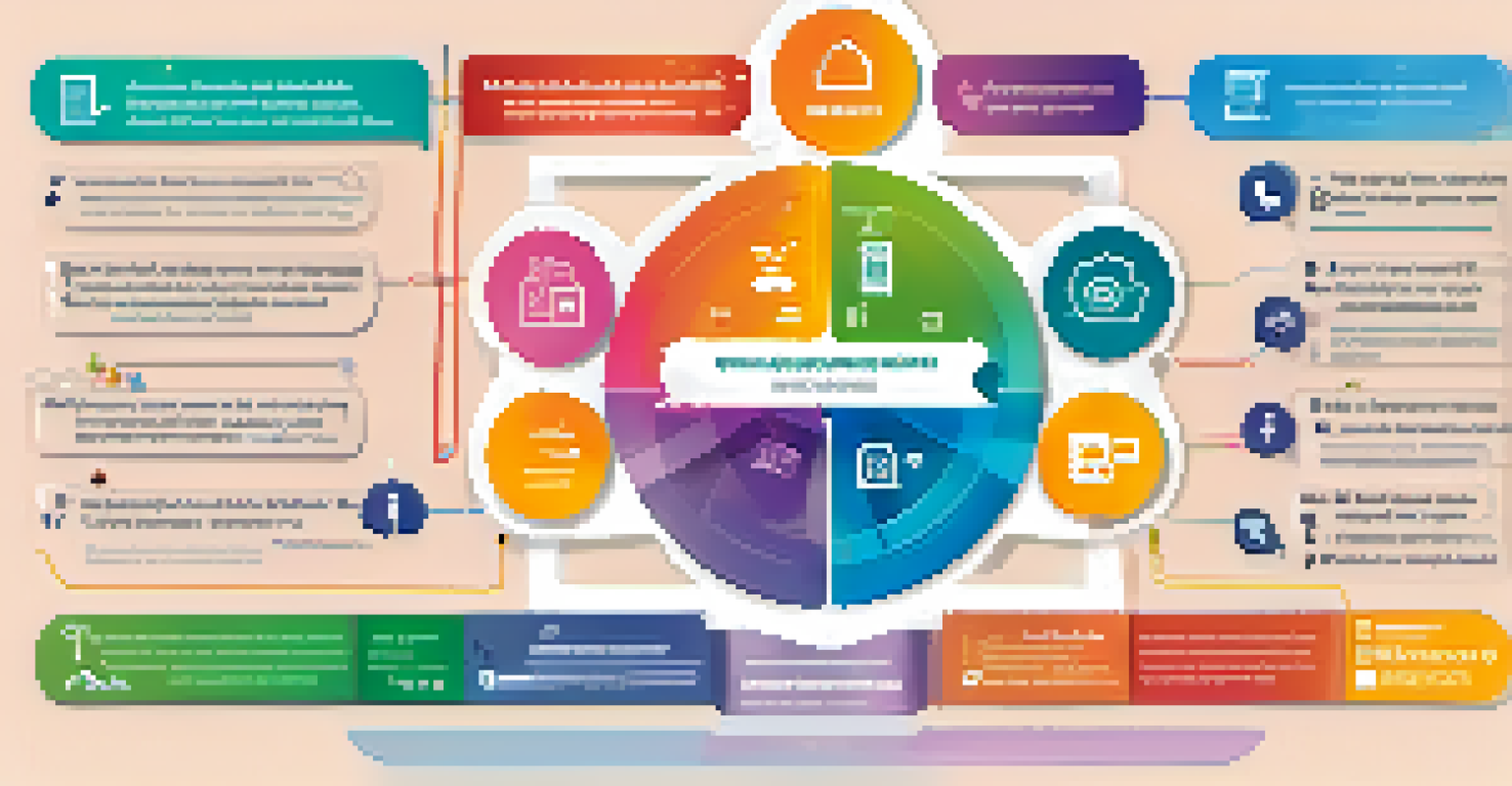Fostering Digital Citizenship to Promote Equity in Education

Understanding Digital Citizenship and Its Importance
Digital citizenship refers to the responsible use of technology and the internet. It encompasses everything from online etiquette to understanding digital rights and responsibilities. In today's tech-driven world, fostering digital citizenship is crucial for preparing students to navigate their lives online safely and ethically.
The internet is a powerful tool for education, communication, and collaboration, but it also comes with responsibilities that we must teach our children to navigate.
As education increasingly incorporates technology, teaching students about digital citizenship becomes essential. It empowers them to engage in constructive online dialogues, respect diverse opinions, and protect their privacy. By instilling these values, educators can help students become responsible digital citizens who contribute positively to their communities.
Moreover, promoting digital citizenship helps bridge the gap between students from different backgrounds. It ensures that all students, regardless of their socioeconomic status, have the knowledge and skills needed to thrive in a digital society. This foundation is vital for achieving equity in education.
The Role of Equity in Digital Citizenship Education
Equity in education means providing all students with the resources, support, and opportunities they need to succeed. In the context of digital citizenship, this translates to ensuring every student has access to technology and the internet. Without these tools, some students are left behind, unable to engage fully in digital learning environments.

When educators prioritize equity in digital citizenship, they're addressing disparities that exist in accessing technology. This includes providing training for both students and teachers on how to use digital tools effectively. By leveling the playing field, schools can create an environment where all students can participate and thrive.
Importance of Digital Citizenship
Digital citizenship is essential for teaching students responsible technology use and ethical online behavior.
Furthermore, fostering equity encourages diverse perspectives in digital spaces. When students from various backgrounds learn together about responsible tech use, they gain insights that enrich their understanding of the world. This diversity ultimately strengthens the fabric of our digital society.
Integrating Digital Citizenship into Curriculum
Integrating digital citizenship into the curriculum is about more than just teaching a few lessons; it’s about weaving these principles throughout all subjects. For example, in a history class, students can learn about the impact of social media on movements for change. In a science class, discussions can include ethical considerations in technology development.
Digital citizenship is about navigating the digital world safely, ethically, and responsibly.
Project-based learning is another effective way to incorporate digital citizenship. Students can work together on projects that require them to use digital tools responsibly, fostering collaboration and critical thinking. This hands-on approach helps them apply what they learn in real-world scenarios, reinforcing the importance of responsible online behavior.
Additionally, involving parents and the community in these initiatives can amplify the message. Hosting workshops that educate families about digital citizenship can create a supportive network that extends beyond the classroom. This collective effort can help ensure that students understand the values of digital citizenship at home and in their communities.
Challenges in Fostering Digital Citizenship
Despite the importance of digital citizenship, numerous challenges can hinder its implementation in schools. One significant hurdle is the unequal access to technology, often referred to as the digital divide. Students without reliable internet or devices are at a disadvantage, limiting their ability to learn about and practice digital citizenship.
Moreover, teachers may lack the training necessary to effectively teach digital citizenship. Many educators are not equipped with the skills to integrate technology into their lessons, which makes it difficult to cover these essential topics. Professional development opportunities focused on digital citizenship can help bridge this gap and empower teachers.
Equity in Digital Access
Ensuring all students have access to technology is crucial for fostering equity in digital citizenship education.
Lastly, the rapidly evolving nature of technology means that digital citizenship education must continuously adapt. New platforms and risks emerge regularly, requiring ongoing updates to the curriculum. Staying informed and flexible is key to preparing students for the challenges they will face online.
Building a Culture of Digital Responsibility
Creating a culture of digital responsibility starts with modeling positive online behavior. Educators and school leaders can demonstrate how to engage respectfully and thoughtfully in digital spaces. By leading by example, they set the tone for students to follow.
Encouraging students to share their experiences online can also foster a sense of responsibility. When students articulate their thoughts on digital citizenship, it reinforces their understanding of its importance. It also creates opportunities for peer learning and accountability.
Lastly, recognizing and celebrating students who exemplify digital citizenship can motivate others. Schools can implement initiatives that reward responsible online behavior, further solidifying a culture of digital responsibility. This positive reinforcement can inspire all students to take ownership of their actions in the digital world.
The Impact of Digital Citizenship on Future Generations
Fostering digital citizenship today shapes the leaders of tomorrow. As students become more aware of their digital footprint and its implications, they learn to navigate the online world with intention. This awareness is critical in a time when misinformation and online harassment are prevalent.
Students who master digital citizenship skills are more likely to engage in civic life and contribute positively to society. They understand the importance of online advocacy and can leverage digital platforms to support causes they care about. This engagement not only benefits individuals but also strengthens communities as a whole.
Building Community Partnerships
Collaborating with local organizations enhances digital citizenship initiatives and extends learning opportunities beyond the classroom.
Moreover, instilling digital citizenship in young learners prepares them for the workforce. Employers increasingly seek candidates who can navigate digital tools effectively and responsibly. By prioritizing digital citizenship in education, we equip students with the skills they need to succeed in a rapidly changing job market.
Creating Partnerships to Enhance Digital Citizenship
Building partnerships with local organizations can greatly enhance digital citizenship initiatives. Libraries, tech companies, and community centers can provide resources and support that schools might lack. Collaborating with these entities can help create comprehensive programs that reach a wider audience.
For instance, workshops led by professionals in the field can offer students hands-on experiences with technology. These partnerships can also facilitate mentorship opportunities, where students learn from role models who exemplify responsible digital behavior. Such real-world connections reinforce the lessons learned in the classroom.

Additionally, community awareness campaigns can promote digital citizenship beyond school walls. By engaging families and local stakeholders in discussions about online responsibility, we create a shared understanding of its importance. This collaborative effort fosters a community that values and practices digital citizenship.